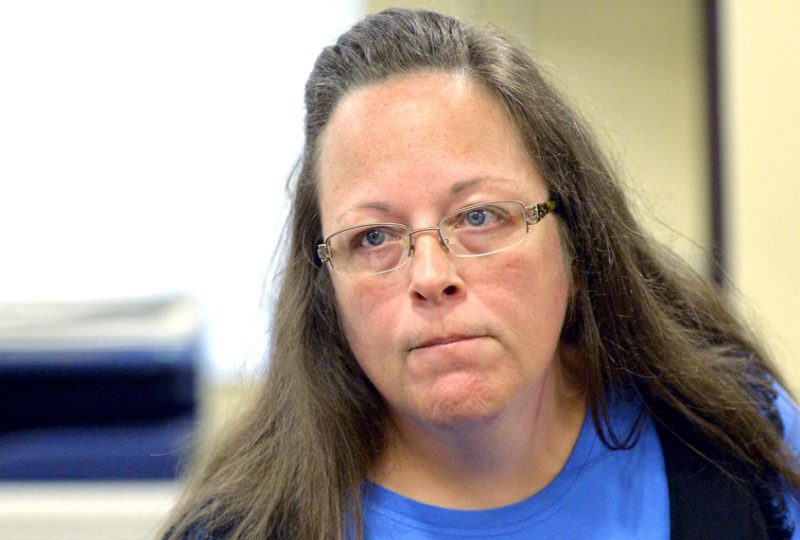
Kim Davis, the Kentucky county clerk who gained notoriety for refusing to issue marriage licenses to same-sex couples, is back in the news. She’s filed a lawsuit with the Supreme Court, aiming to overturn Obergefell v. Hodges, the landmark decision that legalized same-sex marriage. This time, she’s arguing that marriage equality constitutes religious persecution. This isn’t a new tactic; the Christian right has long framed disagreement as oppression, claiming that the mere existence of same-sex marriage infringes upon their religious freedom.
Davis’s lawsuit, backed by the Liberty Counsel, seeks to overturn a jury verdict requiring her to pay $360,000 in damages to a gay couple she denied a license. Her actions, and this latest legal challenge, highlight a broader strategy: portraying acceptance of LGBTQ+ rights as an attack on Christian values. This narrative conveniently ignores the fact that no one is forcing anyone to support same-sex marriage; the issue is about equal rights and non-discrimination.
This strategy isn’t unique to Davis. Supreme Court Justice Clarence Thomas, in his dissent to Obergefell, argued that marriage equality threatened religious liberty. Other prominent figures, including Senator Ted Cruz and various state-level judges, have echoed similar sentiments, claiming that living in a society where same-sex marriage is legal constitutes religious persecution. These arguments often hinge on the idea that exposure to views that differ from their own inherently violates religious freedom.
The absurdity of this claim is striking. Are Christians persecuted by seeing same-sex couples on television, or walking down the street? The core of the argument rests on the idea that simply acknowledging the existence of LGBTQ+ relationships is an act of oppression. This is a blatant attempt to redefine disagreement as persecution, a tactic that has been employed for years to advance a conservative political agenda.
The irony is that the Christian right’s arguments often fail to withstand scrutiny in the court of public opinion. Support for same-sex marriage remains high, indicating that a significant majority of Americans are comfortable with the concept of marriage equality. However, this doesn’t deter the Christian right from pushing their narrative. The problem, it seems, is that they simply cannot accept that their views are not universally shared and that the legal system is not designed to cater to their preferred worldview.
The current Supreme Court, with its conservative majority, presents a potential danger. While it’s uncertain whether they’ll take up Davis’s case, the possibility remains real. Legal experts express concern, particularly given recent rulings that have weakened protections for LGBTQ+ rights and expanded religious exemptions. The stakes are high, and the potential consequences for LGBTQ+ rights are significant. The fight for equality continues, and this latest challenge serves as a stark reminder of the ongoing battle against those who would use the guise of religious freedom to undermine fundamental human rights.










